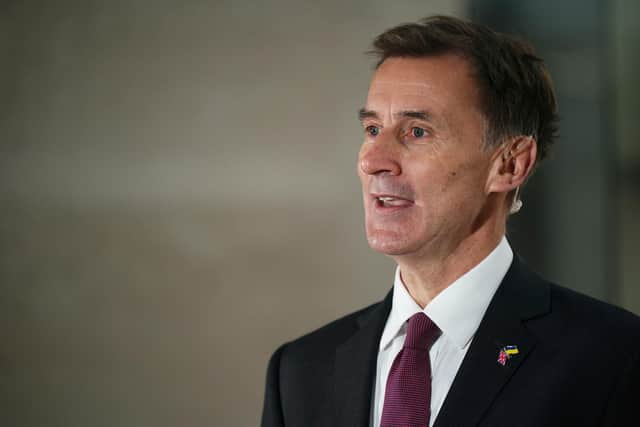Jeremy Hunt must tackle labour market shortages in Autumn Statement: Beckie Hart
But as we approach the Autumn Statement, CBI members are looking for concrete action on the roadblocks in the way of growth – one of the most pressing barriers being labour market shortages.
Our annual Employment Trends Survey - in partnership with Pertemps and launched last week - lays out the challenges UK firms are facing in painstaking detail.
Advertisement
Hide AdAdvertisement
Hide AdOur research found that more than two-thirds of UK firms – a staggering 71 per cent - have been hit by labour shortages in the last year.


And nearly eight in 10 – 77 per cent - have said that the lack of access to skills poses a threat to labour market competitiveness.
It is painfully evident that labour shortages are hampering firms’ quest to growth, and worse yet, we’re seeing signs of the lasting damage these shortages are causing.
More than three quarters of businesses told us that the UK has become a less attractive place to invest. That’s the most negative result we’ve seen in the history of our Employment Trends Survey.
Advertisement
Hide AdAdvertisement
Hide AdThe outlook is bleak too – with 82 per cent of respondents expecting that access to skills will remain a stubborn threat to our labour market competitiveness.


The issue of labour market shortages doesn’t exist in isolation – there are serious knock-on impacts affecting firms in the UK, including in Yorkshire and the Humber.
For example, in the last 12 months, more than a third of businesses (38 per cent) have found themselves unable to grow and seize new business opportunities – in spite of demand – because of labour shortages.
And 22 per cent of firms have been forced to hold back investment due to a lack of staff – with 12 per cent forced to shrink their business altogether.
Advertisement
Hide AdAdvertisement
Hide AdFirms across our region are doing what they can to ease these pressures and boost resilience. 68 per cent of firms are investing in training to upskill current employees and 65 per cent are investing in leadership capabilities to strengthen retention.
But business can’t solve this problem on their own.
The Government can play a crucial role in confronting the damaging shortages hampering our economic progress.
When it comes to the Apprenticeship Levy 65 per cent of respondents want reform of the levy, to offer employers more flexibility to spend funds on a variety of training programmes.
It’s one of our key asks included in our Autumn Statement submission to the Chancellor.
Advertisement
Hide AdAdvertisement
Hide AdOur proposal to turn the Apprenticeship Levy into a Skills Challenge Fund would enable firms to invest more capital in improving the skills of more employees beyond apprenticeships alone.
Firms have also been helping people join the workforce by embedding flexible working policies and investing in employee health. If the Government commits to measures like expanding tax-free health support and subsidising the cost of occupational health services for SMEs, firms can go even further in supporting their people.
Despite the best efforts of UK plc, it’s clear that firms need more support when it comes to labour market shortages. Business leaders across the UK will be looking to the Chancellor to pull the levers necessary to boost our prospects for economic prosperity.
Beckie Hart is CBI regional director for Yorkshire and Humber